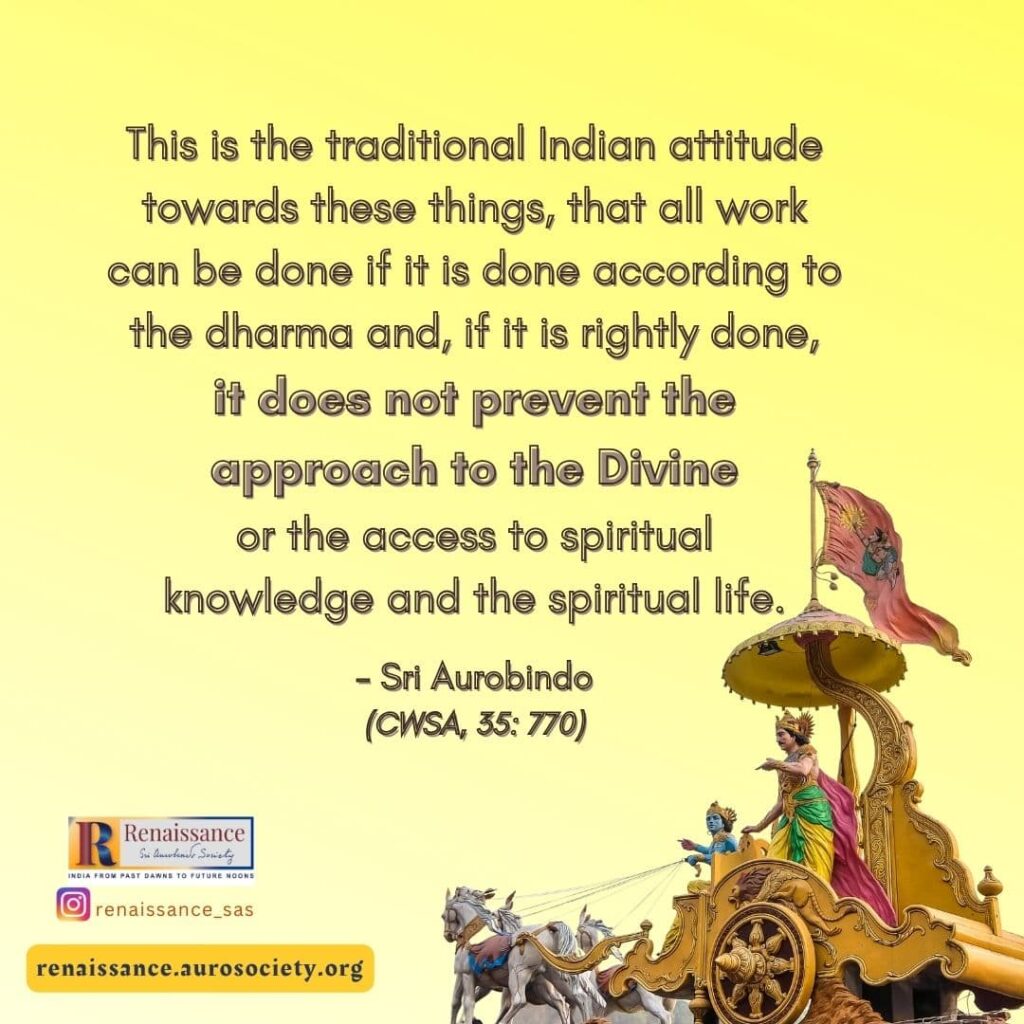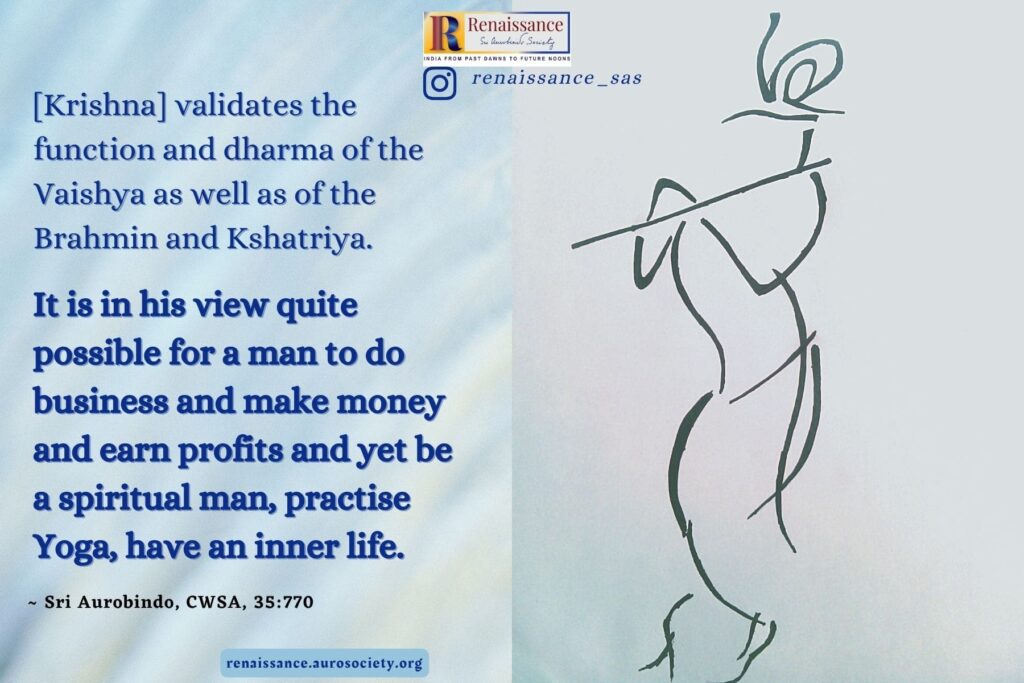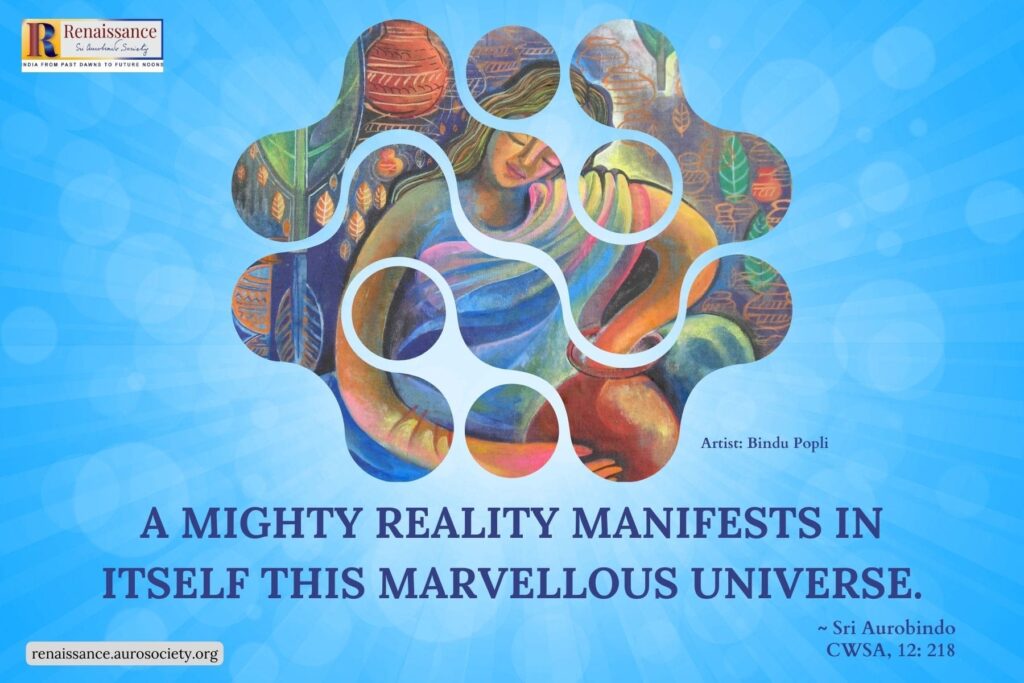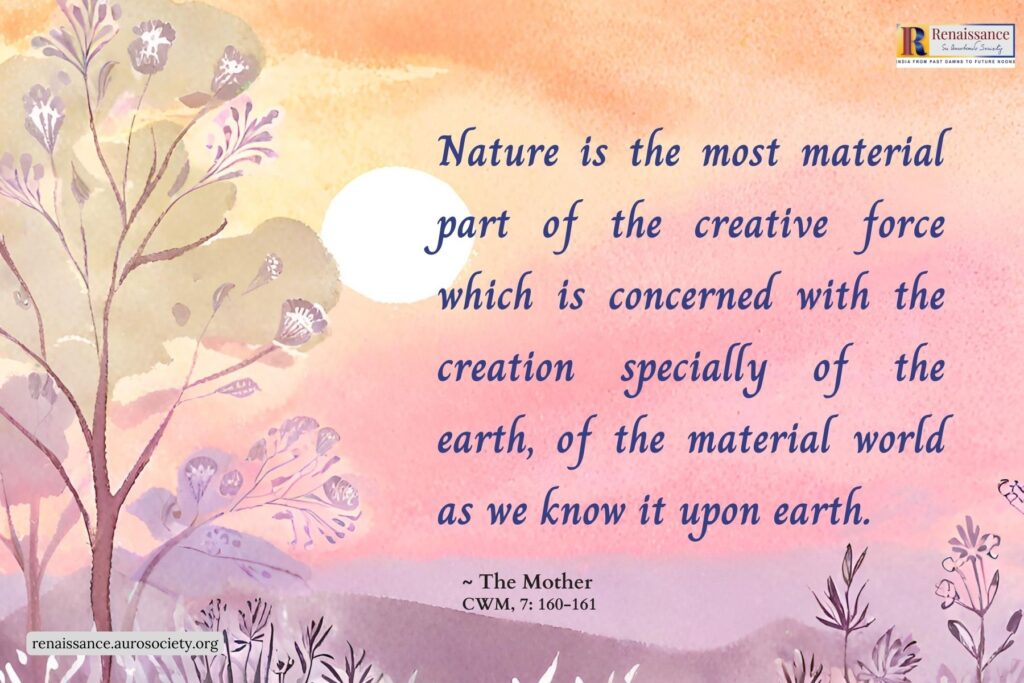Editor’s Note: We bring here two passages from Sri Aurobindo’s works. In the first, Sri Aurobindo describes the nature of economic barbarism behind today’s growing commercialism where the central aim is the pursuit of vital success, possession and enjoyment for their own sake. In the second, he explains that in contrast to today’s commercialism, business when done according to dharma can also be a valid means of sadhana and approach to one’s higher seeking. He quotes relevant examples from the ancient Indian tradition.
🌸
The commercial age and the economic barbarism
. . . if Science has thus prepared us for an age of wider and deeper culture and if in spite of and even partly by its materialism it has rendered impossible the return of the true materialism, that of the barbarian mentality, it has encouraged more or less indirectly both by its attitude to life and its discoveries another kind of barbarism,—for it can be called by no other name,—that of the industrial, the commercial, the economic age which is now progressing to its culmination and its close.
This economic barbarism is essentially that of the vital man who mistakes the vital being for the self and accepts its satisfaction as the first aim of life.
The characteristic of Life is desire and the instinct of possession. Just as the physical barbarian makes the excellence of the body and the development of physical force, health and prowess his standard and aim, so the vitalistic or economic barbarian makes the satisfaction of wants and desires and the accumulation of possessions his standard and aim.
His ideal man is not the cultured or noble or thoughtful or moral or religious, but the successful man. To arrive, to succeed, to produce, to accumulate, to possess is his existence.

The accumulation of wealth and more wealth, the adding of possessions to possessions, opulence, show, pleasure, a cumbrous inartistic luxury, a plethora of conveniences, life devoid of beauty and nobility, religion vulgarised or coldly formalised, politics and government turned into a trade and profession, enjoyment itself made a business, this is commercialism.
To the natural unredeemed economic man beauty is a thing otiose or a nuisance, art and poetry a frivolity or an ostentation and a means of advertisement. His idea of civilisation is comfort, his idea of morals social respectability, his idea of politics the encouragement of industry, the opening of markets, exploitation and trade following the flag, his idea of religion at best a pietistic formalism or the satisfaction of certain vitalistic emotions.
He values education for its utility in fitting a man for success in a competitive or, it may be, a socialised industrial existence, science for the useful inventions and knowledge, the comforts, conveniences, machinery of production with which it arms him, its power for organisation, regulation, stimulus to production.
The opulent plutocrat and the successful mammoth capitalist and organiser of industry are the supermen of the commercial age and the true, if often occult rulers of its society.
The essential barbarism of all this is its pursuit of vital success, satisfaction, productiveness, accumulation, possession, enjoyment, comfort, convenience for their own sake.
The vital part of the being is an element in the integral human existence as much as the physical part; it has its place but must not exceed its place.
A full and well-appointed life is desirable for man living in society, but on condition that it is also a true and beautiful life.
Neither the life nor the body exist for their own sake, but as vehicle and instrument of a good higher than their own. They must be subordinated to the superior needs of the mental being, chastened and purified by a greater law of truth, good and beauty before they can take their proper place in the integrality of human perfection.
Therefore in a commercial age with its ideal, vulgar and barbarous, of success, vitalistic satisfaction, productiveness and possession the soul of man may linger a while for certain gains and experiences, but cannot permanently rest. If it persisted too long, Life would become clogged and perish of its own plethora or burst in its straining to a gross expansion. Like the too massive Titan it will collapse by its own mass, mole ruet sua.
– Sri Aurobindo (CWSA, Vol. 25. pp. 79-81)
***

Read:
Rhythm of Money Power and the Vaishya Soul-Force
Business is not unspiritual
I may say however that I do not regard business as some thing evil or tainted, any more than it was so regarded in ancient spiritual India.
If I did, I would not be able to receive money from A or from those of our disciples who in Bombay trade with East Africa; nor could we then encourage them to go on with their work but would have to tell them to throw it up and attend to their spiritual progress alone. How are we to reconcile A‘s seeking after spiritual light and his mill? Ought I not to tell him to leave his mill to itself and to the devil and go into some Ashram to meditate?
Even if I myself had had the command to do business as I had the command to do politics I would have done it without the least spiritual or moral compunction.
All depends on the spirit in which a thing is done, the principle on which it is built and use to which it is turned. I have done politics and the most violent kind of revolutionary politics, ghoraṁ karma, and I have supported war and sent men to it, even though politics is not always or often a very clean occupation nor can war be called a spiritual line of action.
But Krishna calls upon Arjuna to carry on war of the most terrible kind and by his example encourage men to do every kind of human work, sarvakarmāṇi.
Do you contend that Krishna was an unspiritual man and that his advice to Arjuna was mistaken or wrong in principle? Krishna goes farther and declares that a man by doing in the right way and in the right spirit the work dictated to him by his fundamental nature, temperament and capacity and according to his and its dharma can move towards the Divine.
He validates the function and dharma of the Vaishya as well as of the Brahmin and Kshatriya. It is in his view quite possible for a man to do business and make money and earn profits and yet be a spiritual man, practise Yoga, have an inner life.

The Gita is constantly justifying works as a means of spiritual salvation and enjoining a Yoga of works as well as of Bhakti and Knowledge. Krishna, however, superimposes a higher law also that work must be done without desire, without attachment to any fruit or reward, without any egoistic attitude or motive, as an offering or sacrifice to the Divine.
This is the traditional Indian attitude towards these things, that all work can be done if it is done according to the dharma and, if it is rightly done, it does not prevent the approach to the Divine or the access to spiritual knowledge and the spiritual life.
There is of course also the ascetic ideal which is necessary for many and has its place in the spiritual order. I would myself say that no man can be spiritually complete if he cannot live ascetically or follow a life as bare as the barest anchorite’s. Obviously, greed for wealth and money-making has to be absent from his nature as much as greed for food or any other greed and all attachment to these things must be renounced from his consciousness.
But I do not regard the ascetic way of living as indispensable to spiritual perfection or as identical with it.
There is the way of spiritual self-mastery and the way of spiritual self-giving and surrender to the Divine, abandoning ego and desire even in the midst of action or of any kind of work or all kinds of work demanded from us by the Divine.
If it were not so, there would not have been great spiritual men like Janaka or Vidura in India and even there would have been no Krishna or else Krishna would have been not the Lord of Brindavan and Mathura and Dwarka or a prince and warrior or the charioteer of Kurukshetra, but only one more great anchorite.
The Indian scriptures and Indian tradition, in the Mahabharata and elsewhere, make room both for the spirituality of the renunciation of life and for the spiritual life of action. One cannot say that one only is the Indian tradition and that the acceptance of life and works of all kinds, sarvakarmāṇi, is un-Indian, European or Western and unspiritual.
– Sri Aurobindo, (CWSA, Vol. 35, pp. 769-771)
🌸🌸🌸
Also Read:
The Yogic Attitude Towards Money
~ Design: Beloo Mehra and Raamkumar



